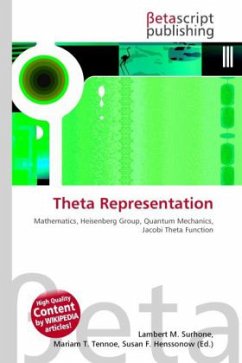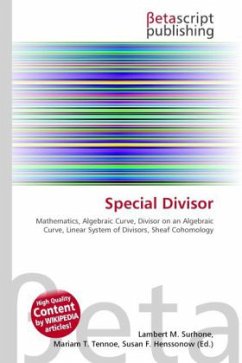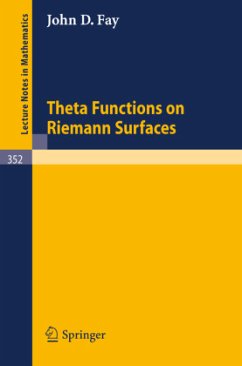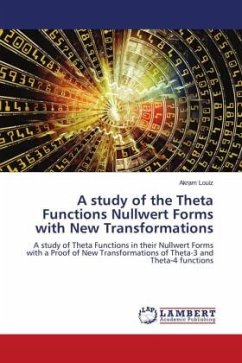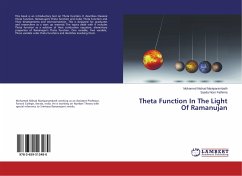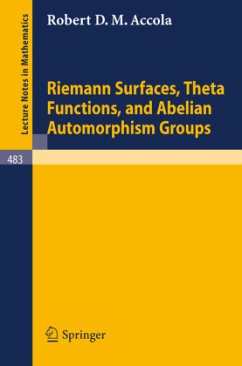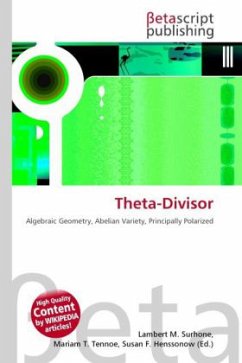
Theta-Divisor
Versandkostenfrei!
Versandfertig in 6-10 Tagen
23,99 €
inkl. MwSt.

PAYBACK Punkte
12 °P sammeln!
High Quality Content by WIKIPEDIA articles! In mathematics, the theta-divisor is the divisor in the sense of algebraic geometry defined on an abelian variety A over the complex numbers (and principally polarized) by the zero locus of the associated Riemann theta-function. It is therefore an algebraic subvariety of A of dimension dim A 1. Classical results of Bernhard Riemann describe in another way, in the case that A is the Jacobian variety J of an algebraic curve (compact Riemann surface) C. There is, for a choice of base point P on C, a standard mapping of C to J, by means of the interpreta...
High Quality Content by WIKIPEDIA articles! In mathematics, the theta-divisor is the divisor in the sense of algebraic geometry defined on an abelian variety A over the complex numbers (and principally polarized) by the zero locus of the associated Riemann theta-function. It is therefore an algebraic subvariety of A of dimension dim A 1. Classical results of Bernhard Riemann describe in another way, in the case that A is the Jacobian variety J of an algebraic curve (compact Riemann surface) C. There is, for a choice of base point P on C, a standard mapping of C to J, by means of the interpretation of J as the linear equivalence classes of divisors on C of degree 0. That is, Q on C maps to the class of Q P. Then since J is an algebraic group, C may be added to itself k times on J, giving rise to subvarieties Wk. If g is the genus of C, Riemann proved that is a translate on J of Wg 1. He also described which points on Wg 1 are non-singular: they correspond to the effective divisorsD of degree g 1 with no associated meromorphic functions other than constants.





